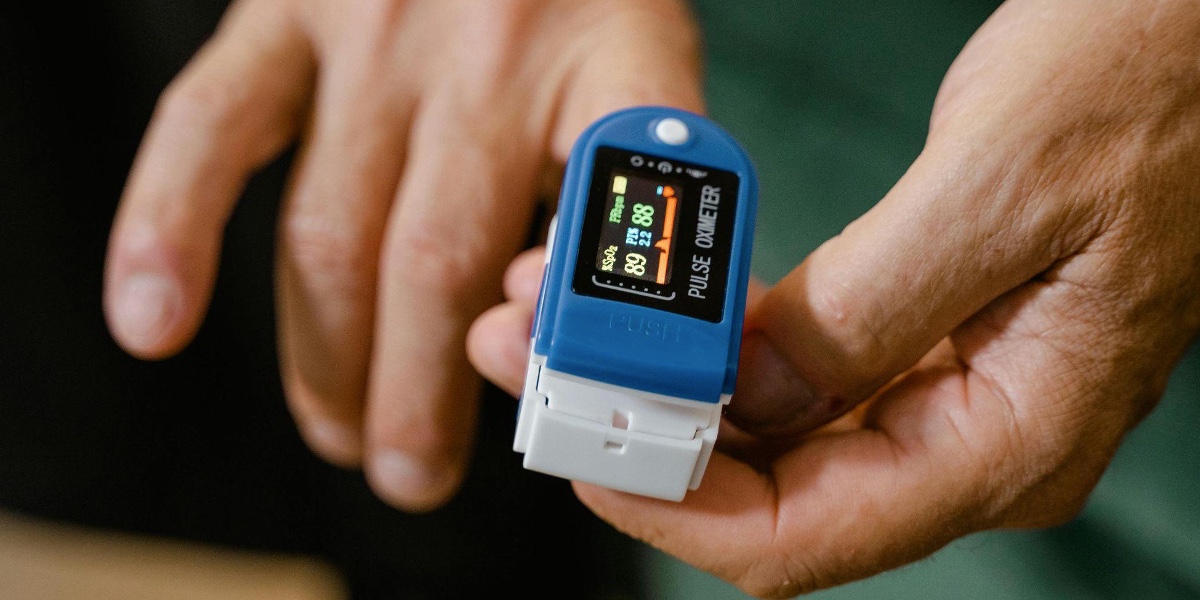Biofeedback is a therapeutic technique therapists, counselors, coaches, doctors, nurses, and teachers use. Becoming a biofeedback practitioner varies by field, demanding various education and training requirements. To be recognized as a biofeedback professional, you must earn your biofeedback certification from the Biofeedback Certification International Alliance (BCIA) organization.
Saybrook University’s online Mind-Body Medicine (MBM) program includes a master’s and doctoral degree, each with biofeedback courses that expand on the technique's research, application methods, and patient care. The master’s degree and the Ph.D. in Mind-Body Medicine focus on holistic approaches to integrated healing by applying scientifically supported practices.
The MBM program includes elective courses that prepare students to earn the BCIA certification. Both the MBM master’s and Ph.D. give graduates a competitive edge in the biofeedback industry with a thorough understanding of sustainable and complementary wellness solutions that go beyond symptom relief to restore the balance between mind, body, and spirit.
What Is Biofeedback?
As part of mind-body medicine, biofeedback is a self‐regulation technique in which patients learn to adjust their physiology to improve their physical, mental, emotional, and spiritual health. Individuals learn to control body processes that were previously thought to be involuntary. Anxiety is a common condition treated with biofeedback by helping the patient become aware of their thoughts, feelings, and behaviors related to their physiology to then learn to self-regulate. This technique is commonly used for stress-related medical conditions.
The Saybrook biofeedback training sequence covers the Blueprint of Knowledge adopted by the Biofeedback Certification International Alliance to guide the training of biofeedback professionals. The three Mind-Body Medicine elective biofeedback courses expand on clinically measuring and applying this approach, utilizing biofeedback in psychotherapy, optimal performance training in sports and the arts, and personal transformation.
Basic Training and Education in Biofeedback online course provides students with a foundational understanding of psychophysiological research-based biofeedback applications for common medical and behavioral conditions as part of integrative health care. This mind-body medicine course gives an introduction to how to use and measure physiological systems of biofeedback instruments.
The Advanced Biofeedback course includes online contact with the mind-body medicine faculty and students, working through directed readings and research in biofeedback specialty areas, and the applied practice of biofeedback and/or neurofeedback with regular group-based supervision.
The third mind-body medicine biofeedback course is Heart Rate Variability (HRV) Biofeedback, available only to Mind-Body Medicine Ph.D. students. It emphasizes methods for evaluating and training autonomic nervous system quieting through heart rate variability biofeedback training. HRV is backed by extensive research and has proven to have therapeutic benefits for medical and mental conditions. This course meets the requirements for the Biofeedback Certification International Alliance “Certificate of Completion” in heart rate variability.
Biofeedback Therapist Education Requirements
Similar to the various biofeedback careers, becoming a biofeedback therapist depends on each state's requirements. It is commonly expected to become a mental health professional/behavioral disorder counselor by earning a bachelor’s and master’s degree in mind-body medicine, psychology, or a related social science field. Graduates must complete a specified number of hours of supervised clinical experience, pass the Biofeedback Certification International Alliance examinations, and complete continuing education every year as required to maintain the certifications.
Saybrook University offers an online Biofeedback Certificate that aligns with the BCIA’s Blueprint of Knowledge. This certificate prepares students for the exam with proficiency using biofeedback technologies, assessment, and intervention strategies. Students in the Ph.D. Mind-Body Medicine general program will have the flexibility to earn this certificate while earning their doctoral degree.
The levels of BCIA biofeedback certifications vary by professional experience:
- Biofeedback Professional Entry Level Certification
- Biofeedback Certification by Prior Experience
- Biofeedback Technician Entry Level
- Biofeedback Technician Certified by Prior Experience
Join Saybrook’s Online Mind-Body Medicine Program
To pursue a career in biofeedback, you will need at least a master’s degree to be eligible for the Biofeedback Certification International Alliance required certifications. Saybrook University offers an online master’s in Mind-Body Medicine, a Ph.D. in Mind-Body Medicine, and a Biofeedback Certificate, which all prepare you to meet the certification requirements, build in-depth psychophysiology knowledge, and effectively utilize biofeedback instruments to effectively evaluate the patient.
























